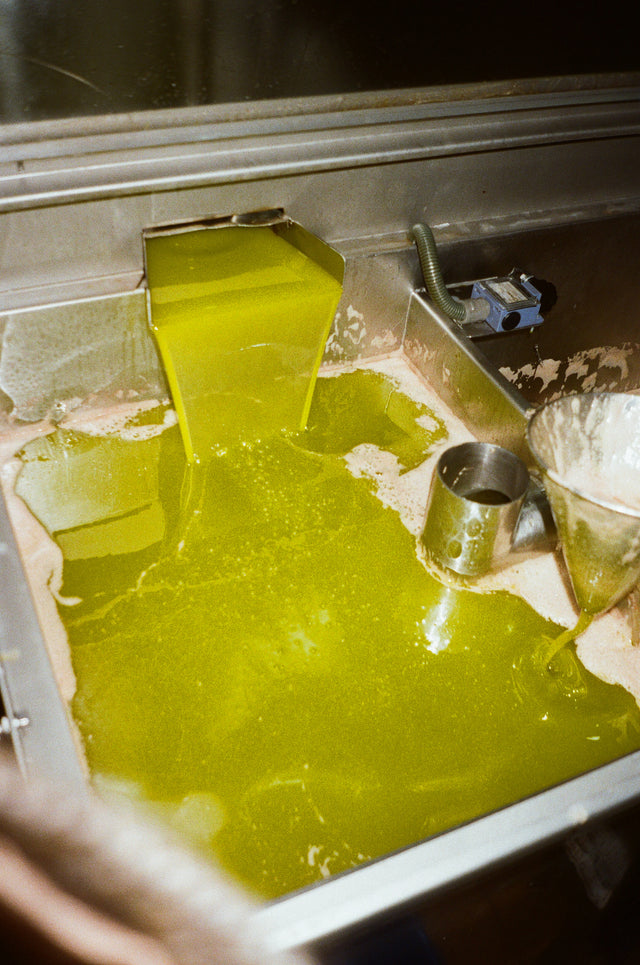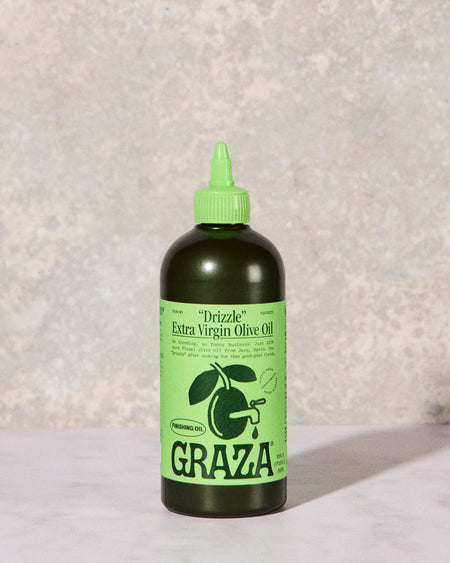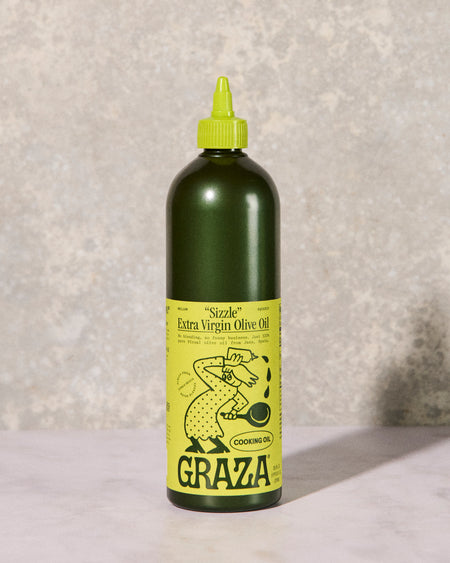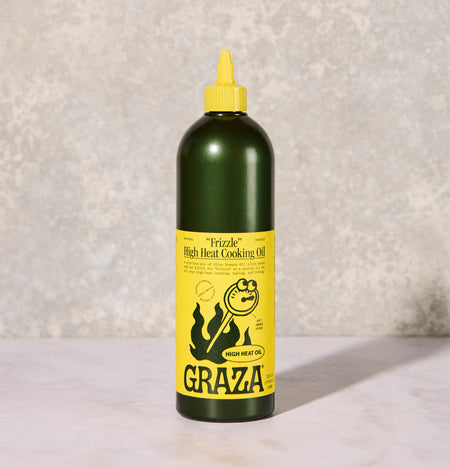
Does Olive Oil Solidify?
Olive oil is so often called and likened to liquid gold that it can be a little jarring to see the oil in a solid form. If you have ever left a bottle in a fridge or stood with a bottle outside in the winter (this might only apply to us), you might have encountered the EVOO slushee, as we like to call it.
Be Chill
The solidification of olive oil depends on temperature. Olive oil, like other fats, has a certain point at which it changes from a liquid to a solid. For olive oil, this point is around 37-50 F. Refrigerating olive oil will usually lead to the creation of a green oatmeal-like olive oil mush! So if your bottle becomes a bit cloudy and or your oil becomes a half-solid blob, not to fret it's quite normal and can be reversed by putting the bottle in a room-temp setting.
The Science of Solidification
Olive oil, like many other fats, is made up of fatty acids. These fatty acids include saturated, monounsaturated, and polyunsaturated fats––a fancy way to say there are different types of fats in the mix with different melting points.
Saturated fats tend to solidify at higher temperatures. Think of butter and how it gets rock-hard in the fridge.
Monounsaturated fats (which are abundant in olive oil) solidify at slightly lower temperatures.
Polyunsaturated fats stay liquid longer but will eventually solidify if things get really cold.
When olive oil is placed in a cold environment, it starts to behave like butter at a room temp––parts of it begin to solidify. This is due in part to those saturated and monounsaturated fats. Unlike coconut oil, which solidifies into one hard block, olive oil first starts to cloud its container and develop some chunks. This cloudiness is the saturated fats separating out from the rest of the oil.
Solid News
So now you know, the solidification of olive oil is a completely normal and reversible process. When olive oil solidifies it's completely harmless and has no affect on the quality or taste of the oil. Olive oil is best stored in a cool, dark place which can include a refrigerator. Just prepare to set your olive oil out in warmer temps before using if you choose to store in the fridge.
Pro Tip: Solidification Can Be a Sign of High-Quality Oil
Believe it or not, the cloudiness or partial solidification of olive oil can be a good sign! Higher-quality, extra virgin olive oil is typically less processed and contains more of the natural fatty acids that contribute to its cloudiness when cooled. So if your olive oil solidifies in the fridge, it could be a sign that you’re working with the good stuff.
The next time your olive oil solidifies or looks cloudy, don't sweat it. Give it a quick thaw and you'll be back to sizzling and drizzling in no time. Solid olive oil, no problem. Solid knowledge, now you've got it!

















